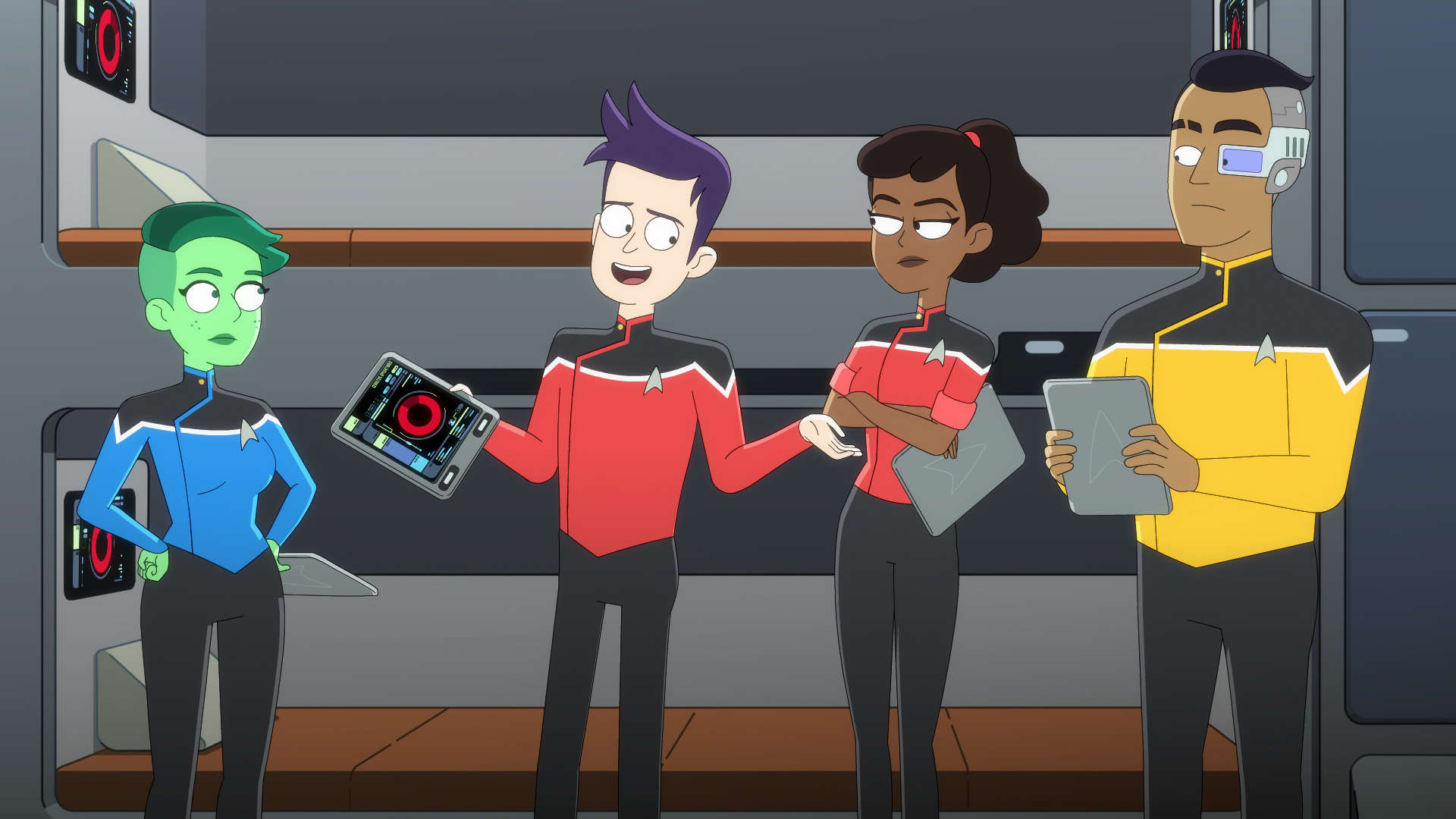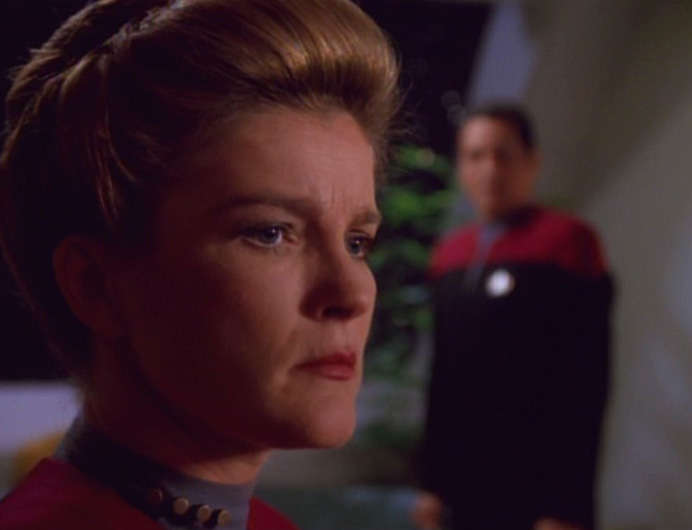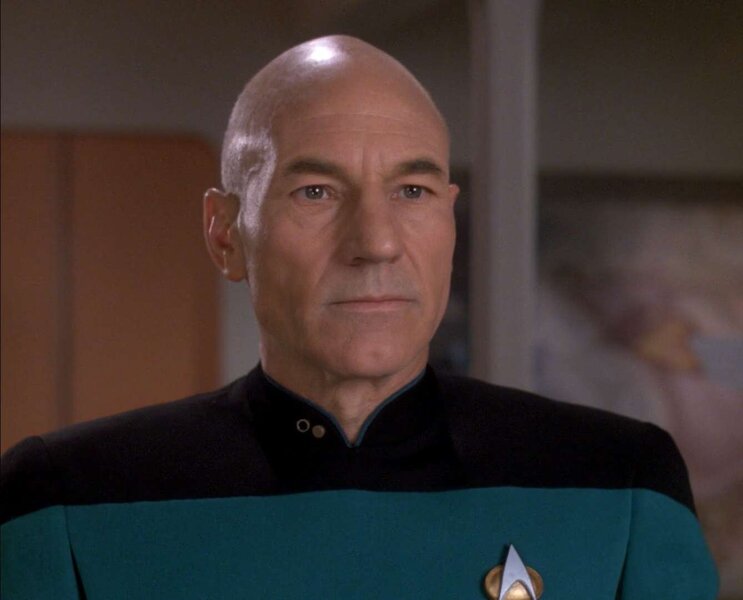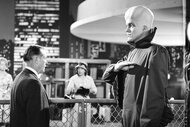Create a free profile to get unlimited access to exclusive videos, sweepstakes, and more!
Lower Decks explores the power of individuals in Starfleet head on

The history of Star Trek is filled with the names of heroic, charismatic individuals — Kirk, Picard, Janeway, Sisko, Burnham. Throughout the seasons and films within the pantheon of Trek tales, we've seen these people defy the odds, stare into the faces of countless enemies, and save their ships, the federation, and sometimes the entire history of humanity itself. These figures become icons not just among real-world Trekkies, but in the history books of the Federation itself. They become admirals, have maneuvers named after them, and in one case even become a spiritual envoy to godlike aliens who live in a wormhole. (Like you do.)
What Star Trek is also filled with is the iconography of Starfleet, the Federation's space exploration and defense service. Serving as a blend of NASA and a more diplomatic space navy, Starfleet is meant to represent the shining beacon of hope in the Alpha Quadrant. It's a symbol of show creator Gene Roddenberry's optimistic vision of the future. It also has a lot of rules.
For the most part, each of the aforementioned heroes has overwhelmingly positive feelings about the Federation and its regulations. Janeway insisted that the U.S.S. Voyager and its new crew members, refugees from the renegade Maquis ship, maintain Starfleet protocol despite being on their own on the other side of the galaxy. And even though he resigned from the service over his feelings that Starfleet had lost their way, Picard still finds himself admiring the way Captain Rios sticks to Starfleet regulations in the way he organizes his very un-Starfleet ship.
And yet each of these characters has made a regular habit of breaking Starfleet rules. Kirk is famous for reprograming the Kobayashi Maru training module so he can beat it, rebelling against the system before he graduates from the academy. The plot of Season 1 of Picard is specifically about the best captain ever going rogue. Heck, the third film in the Next Generation movie series was literally called Insurrection. And Voyager ends with a future version of Janeway breaking the rules to travel back in time and change the course of her ship's history, returning it home earlier, saving the life of her crewmembers, and dealing a damaging blow to the Borg in the process.
Warning: The following may contain spoilers for the current season of Star Trek: Lower Decks ...
Historically, the show has tended to treat these moments as outliers. Decisions made by characters in a desperate situation, when there are no other options. But a recent episode of the new animated Star Trek series Lower Decks has taken a completely different approach. In "Temporal Edict," the series suggests that these characters breaking the rules don't succeed in spite of the rules of Starfleet, but rather that such rule-breaking and individualism is at the core of what allows Starfleet to actually function.
In the episode, in response to the discovery that the ship's ensigns are building "buffer time" into all of their tasks, Captain Freeman (Dawnn Lewis) institutes a shipwide mandate that requires the ship to follow strict adherence to Starfleet protocols at all times. As a result, the U.S.S. Cerritos crew quickly becomes overwhelmed with stress, and are also unable to adapt when an otherwise innocuous alien threat attacks the ship. They're soon overrun by the invaders, and the bridge crew find themselves unable to maneuver out of the situation. Similarly, in the B-plot, the away team find themselves captured by the very same aliens and facing a similar dilemma between following protocol or doing what they need to do to get out of it.
This is hardly the first time in the history of Star Trek where an episode has focused on the dichotomy of Starfleet protocols and the fierce individualism of the crew. In the Next Generation episode "Tapestry," omnipotent alien Q shows Captain Picard that had he played it safe throughout his career and refused to stick his neck out, he'd never have ascended to the rank of captain. Similarly, when Kirk is "punished" in Star Trek IV: The Voyage Home for his rule-breaking actions of the previous film, his sentence is a demotion from admiral to captain, allowing him to resume his duties commanding the Enterprise, ultimately the thing he wants more. And countless hours of Star Trek programming has revolved around the nuances of following the Prime Directive.
What makes "Temporal Edict" so interesting, then, is not in the fact that it treads this similar ground, but rather the way that it solves its conflict. Within the episode, when Ensign Boimler (Jack Quaid) informs the captain that it's the stress of following protocol that has hamstrung the ship in the middle of a crisis, she reverses her previous edict, instead insisting that the crew think creatively and develop their own solutions to expel the aliens from their ship. Similarly, on the alien planet, Ensign Mariner (Tawny Newsome) convinces Commander Ransom (Jerry O'Connell) that he needs to break the rules in order to protect his team.
What Captain Freeman's new protocol establishes is something of a watershed moment for Star Trek — through the institution of what she dubs the Boimler Effect, Freeman codifies into Starfleet law something that the audience of Trek has known for decades. It establishes that the great heroes of Starfleet are not simply outliers whose efforts are necessary in a crisis. It makes official the fact that the ability of capable, trained crewmembers breaking the rules once in a while is intrinsically part of a functioning Starfleet.




























